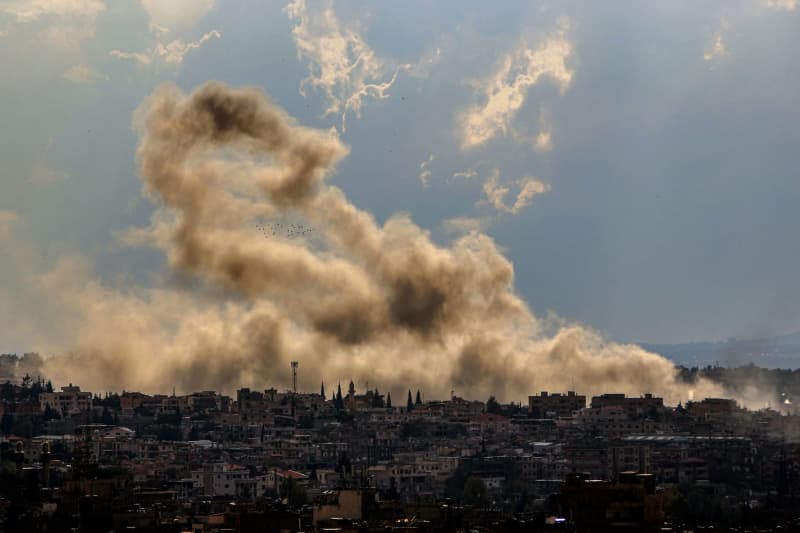The ongoing conflict between Israel and Hezbollah has escalated dramatically, particularly affecting the southern Lebanese city of Tyre where seven people were killed and over 40 injured following Israeli airstrikes, as reported by the Lebanese Health Ministry. Emergency responders are actively searching through the rubble for additional victims. Among the casualties was a devastating airstrike on Deir Qanoun Ras al-Ain, which resulted in the deaths of eight individuals, including seven paramedics, and left twelve more injured. These strikes were reported to specifically target gatherings of paramedics affiliated with Hezbollah. Furthermore, the Israeli military claimed to have struck command centers and weapons manufacturing sites in southern regions of Beirut, which is widely recognized as a stronghold for the Iranian-backed militia.
The recent wave of Israeli airstrikes has seen an alarming escalation, with more than 670 attacks recorded across Lebanon within just a week. This assault has resulted in over 230 fatalities and more than 800 injuries, as stated by the Lebanese health authorities. Disturbingly, this figure does not differentiate between civilians and fighters associated with Hezbollah. Given the tensions that have been intensifying since the October 7 attacks by Hamas on Israel, the ongoing exchange of fire continues to exacerbate the situation in southern Lebanon while Israeli ground operations have been ramping up.
Simultaneously, the conflict has seen a catastrophic impact on Gaza, where Israeli assaults have exacerbated humanitarian crises, resulting in reports of at least 11 additional Palestinian deaths in recent attacks across Gaza City and Beit Hanoun. The situation is dire, with residents expressing anxiety over their survival amid escalating violence and dwindling aid. A resident, referred to as Om Mohammed, articulated the helplessness felt in these circumstances, stating that there appears to be no concern for their plight. Global food security experts have raised alarms regarding an imminent famine in northern Gaza, although the Israeli military has rejected these assertions, citing recent deliveries of aid, including food, water, and medical supplies.
The Israeli military has claimed that their operations have targeted militant infrastructure in northern Gaza, asserting that ground troops have successfully engaged militants and destroyed terrorist facilities, including in the Jabalia area. However, the humanitarian toll remains staggering; reports indicate that around 43,000 Palestinians have died since the conflict escalated, particularly following the fatal attacks initiated by Hamas against Israeli civilians which resulted in approximately 1,200 Israeli deaths and the abduction of around 250 people to Gaza.
In the occupied West Bank, tensions have also escalated significantly, as highlighted by the Israeli military’s engagement resulting in the death of a 25-year-old Palestinian man during an operation. Reports suggest that Israeli forces surrounded the man’s family home before he was shot, indicating a sharp rise in conflict-related fatalities within the region. The overall context reveals that over 746 Palestinians have lost their lives in the West Bank since the outbreak of fighting, underscoring the grave consequences of the intensified military presence and the resultant violent confrontations between Israeli forces and Palestinian residents.
During this tumultuous time, images of devastation and despair have emerged, such as scenes of destroyed infrastructure in places like Baalbek and charity efforts providing food to Palestinian children in need. The intertwined narratives of violence, loss, and humanitarian concerns paint a complex picture of a region in turmoil. The situation remains fluid, marked by ongoing violence, critical humanitarian challenges, and the overarching question of how to achieve lasting peace amid escalating conflicts and severe humanitarian crises. As both sides continue their military engagements, the potential for an even broader humanitarian disaster looms large, raising concerns that without a swift resolution, the cycle of violence may perpetuate further suffering for countless civilians.

